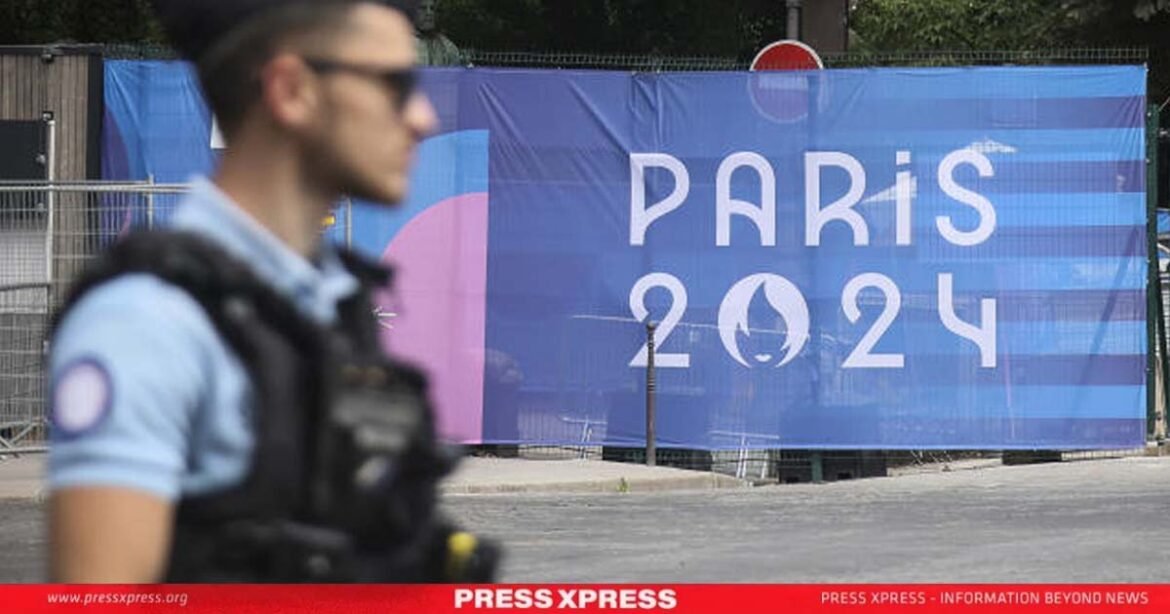The 2024 Paris Olympics are set to begin soon, featuring a full schedule of sporting events. The Olympics will officially open in Paris on Friday night, July 26, and run through Sunday, August 11. However, some qualification events began on Wednesday, July 24.
In preparation for the Olympics, French President Emmanuel Macron and his ministers have been actively engaging with the media, emphasizing that France is ready to ensure the safety of the event. The Games will see the largest security operation in French history, with 75,000 cops and gendarmes deployed on the opening day and 35,000 on duty each subsequent day during the competition.
You can also read: Richest 1% Adds $42 Trillion; G20 Faces Taxing Showdown
In an impressive start to the Games, France secured a 3-0 victory over the USA in their opening match, following a slow start from both sides, delighting the enthusiastic crowd in Marseille. As the host nation, France made an ideal debut, while the USA faces a challenging road ahead with upcoming group matches against New Zealand on July 27 and Guinea on July 30.
France will also play Guinea on July 27, followed by New Zealand on July 30.

The opening ceremony on July 26 will take place along the Seine River, which flows through Paris. No sporting events are scheduled for that day. Approximately 10,500 athletes from 206 National Olympic Committees will participate in the Games.
Terror Threat Looms Over Paris Games as ISIS Issues Warning
The terrorist group ISIS has issued alarming threats against the Olympics on 9 June, releasing a propaganda poster depicting one of its operatives piloting a “weaponized drone” toward the iconic Eiffel Tower.
Since the start of the Gaza conflict, European police and security agencies have thwarted numerous alleged plots. These include plans to target Christmas markets and cathedrals in Germany and Austria in December 2023, a concert in Belgium in March 2024, and the Swedish Parliament.
Additional alleged plots involved attacks on churches and police officers in Germany in April 2024 and a shooting plot against Jewish communities and security officials in the UK in May 2024.
Moreover, there have been alleged threats directly aimed at the Paris Olympics. In late April, a 16-year-old was arrested for announcing on social media his intention to die a martyr at the Olympics.

On May 22, an 18-year-old was detained in Saint-Étienne for allegedly planning an Islamist-inspired attack at a football stadium that will be used during the event.
In response to the heightened security concerns, an elite anti-terrorist unit has been deployed in France to safeguard the Israeli football team and their supporters as they begin their tournament this week.
Additionally, Olympic bicycle motocross(BMX) champion Logan Martin reported being a victim of an alleged robbery in Belgium, on 24 July.
Authorities have been active even before the Olympics, with several arrests already made in connection with the heightened tensions and security threats. A new intelligence analysis center, established specifically for these Games, will serve as a central hub for information gathered from various French law enforcement agencies.

France’s Olympic Guard Stands Ready

France has invested an impressive £350 million in bolstering their comprehensive security operations in preparation for the Olympics. The Olympics come to Paris almost 9 years after coordinated terrorist attacks on 13 November, 2015 killed 130 people in the deadliest attack ever in peacetime France. There have been about 50 terrorist attacks stopped by intelligence services since 2017, officials said.
Of the 45,000 law enforcement agents who will be on duty Friday, there will be 650 members of elite tactical units, snipers and hostage specialists. There’ll also be 22,000 private security contractors working during the opening ceremony.
Approximately 250 British officers and 50 police dogs will be stationed in France over the coming weeks. Some of these officers will join French foot patrols in central Paris.
They are part of a larger group of 1,750 foreign police from various countries, including Spain, Germany, South Korea, and Qatar, who are participating in the operation.
To enter any part of the control zone, whether it’s blocks away from an Olympic event venue or the Seine River, getting through checkpoints can take 20 to 30 minutes depending on traffic and time of day. Police check everyone’s credentials and match them with IDs.

French authorities carried out background checks on a million people linked to the Games, including job applicants, volunteers, competitors, coaches and staff, journalists and security contractors, leading to 4,350 identified as potential security threats.
High-Tech Olympic Defense
Paris has taken extensive measures to prepare for potential terrorist threats by deploying elite soldiers in units akin to the Special Air Service (SAS), along with surface-to-air missile systems. These mobile defense systems include 12 advanced Crotale New Generation short-range air defense missile units. It was disclosed in March that the French authorities had secured several Crotale systems from the Hellenic Air Force in Greece.
The missiles, capable of traveling at Mach 3.5—three and a half times the speed of sound—have a range of approximately seven miles, allowing them to neutralize targets effectively.
The Paris Police Prefecture has announced the implementation of a 4-mile-long metal barrier, known as the “belt of steel,” designed to serve as the first line of defense against any threats. Around 44,000 barriers have been installed.
Additionally, about six drones are intercepted near Olympic sites daily, with a no-fly zone extending up to 93 miles from the center of Paris. Security measures also include deploying 100 mine-clearing divers to ensure underwater safety.

For decades, the Olympic Games have been a tempting target for terrorists. The upcoming Paris Olympics coincide with a rise in the Islamic State threat, partly fueled by the group’s exploitation of the Gaza conflict. While direct attacks on the Olympics have become increasingly challenging since the 1972 Munich massacre, this heightened security has come at significant financial and other costs.


